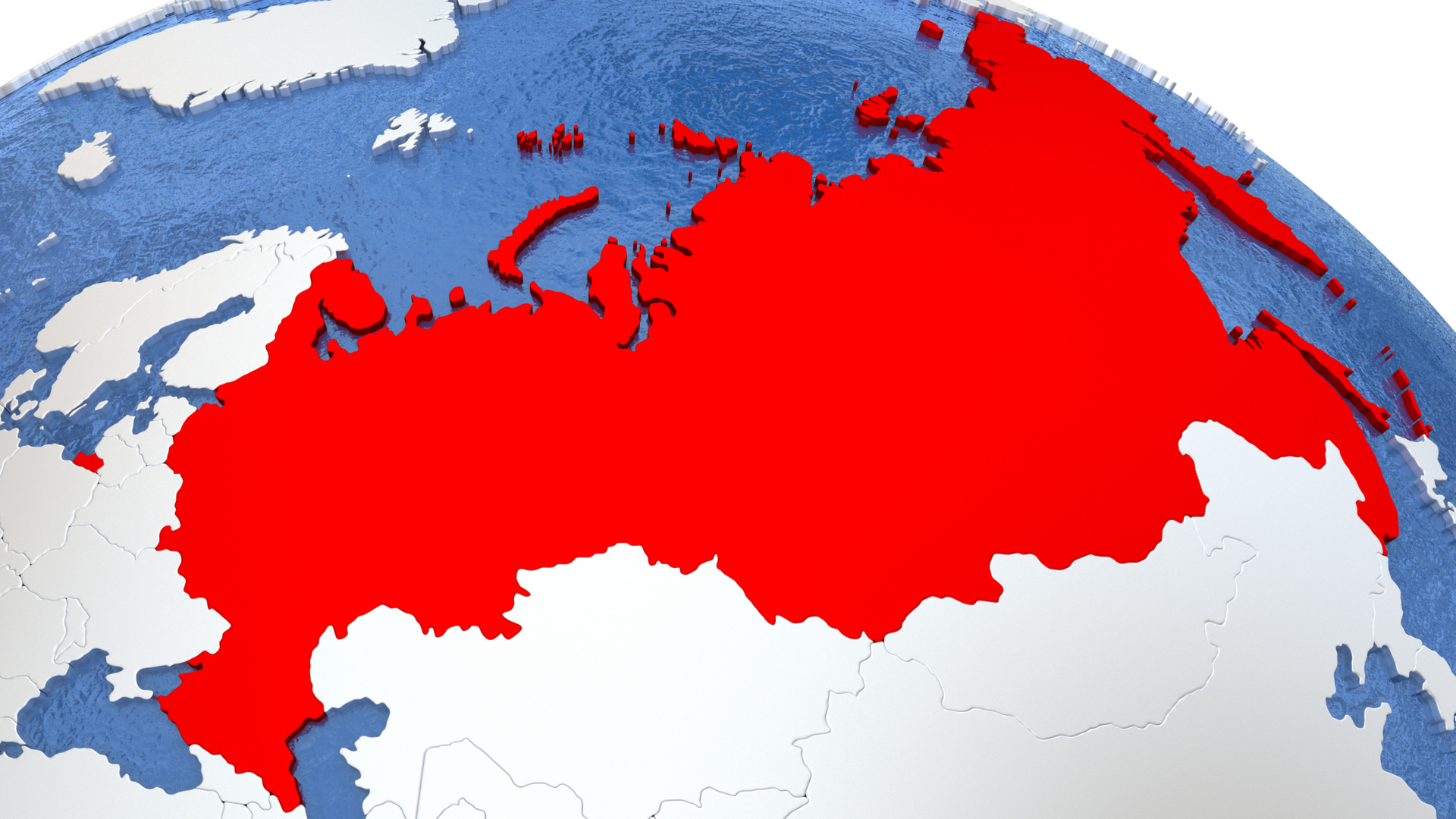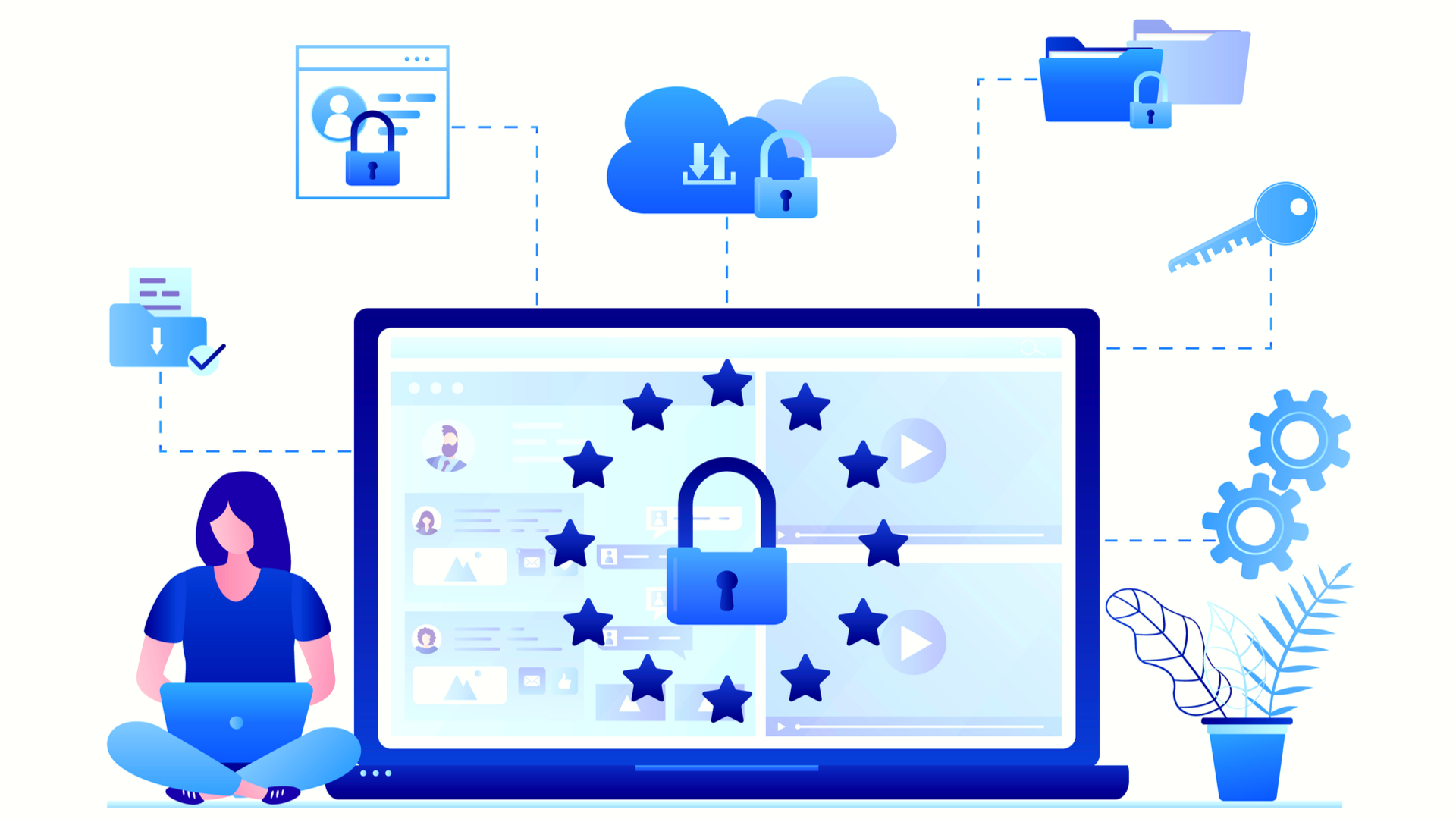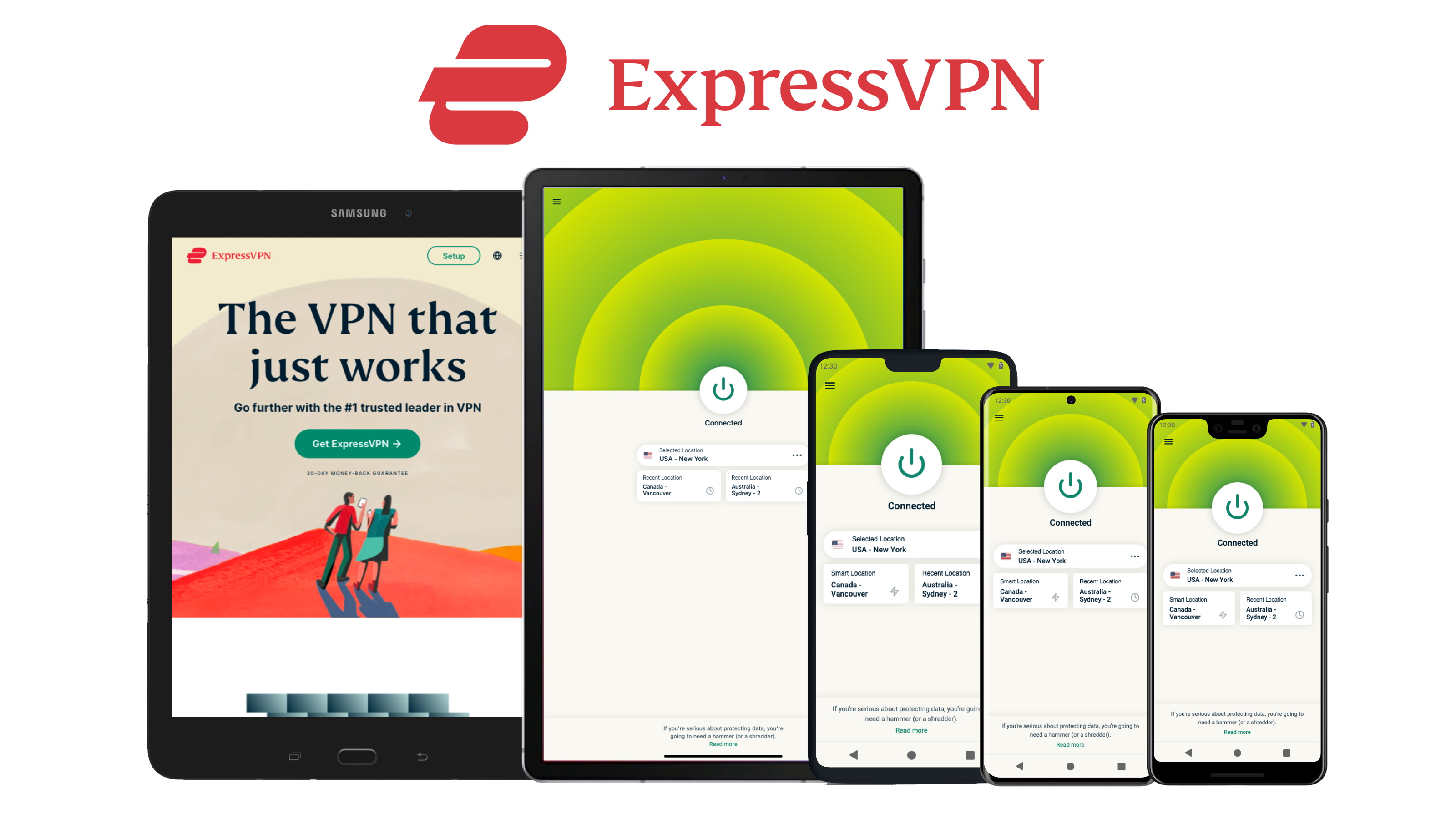Russia VPNs: how to stay safer online and avoid censorship
Censorship is on the rise, cyberattacks are soaring, and demand for VPNs has never been higher

Sign up for breaking news, reviews, opinion, top tech deals, and more.
You are now subscribed
Your newsletter sign-up was successful
With Moscow intensifying its campaign of censorship and Russian websites an increasingly tempting target for hackers, demand for reliable VPNs has soared to an unprecedented level across internet users in the country.
The demand for Russia VPNs has risen sharply since the Ukrainian invasion began. In April 2022, AtlasVPN recorded a massive 2,000% increase in new installs.
Following the Kremlin's decision to restrict access to Twitter and Facebook, on February 28, Top10VPN's global monitoring data also registered a peak of 489% in internet searches in Russia for VPNs compared to the usual daily average.
Russia has long been infamous for imposing strict regulations when it comes to VPN usage. Let's take a look at the best VPNs in the business, how you can use them to improve your digital anonymity in Russia (and elsewhere), and whether or not it's worth investing in one.
Why do people in Russia need a VPN?
Even though Russian internet restrictions are not as stringent as those ruling in China, the Kremlin has been intensifying its control over information for a while now.
Known as the 'single register', Moscow's centralized internet blacklist has been banning new URLs, domains and IP addresses on a regular basis since 2012.
Originally created as a means to block certain type of websites only - those containing child pornography, drugs abuse or description of suicide methods, for example - it has quickly become a way to censor dissidents, as Freedom House reported.
This has only escalated as the conflict has raged on. On March 4, Russia's media and communication regulator - the Roskomnadzor - blocked the websites of international news organizations such as the BBC, Voice of America and Radio Free Europe.
This just came right after Putin signed a law criminalizing any public oppositions to the conflict, with punishment up to 15 years jail time. The new regulation could make it a crime to simply describe the invasion as a 'war' - the Kremlin prefers the term 'special military operation'.
According to analysis conducted by Top10VPN, more than 5,000 sites have been added to the blacklist since February 24 - the day when the first missiles were fired at Ukraine. Among those there are many porn and gambling sites, foreign exchange and cryptocurrency platforms, a significant number of Ukrainian news sites as well as national news titles expressing anti-war sentiments.
⚠️ Confirmed: Facebook content servers are now restricted on #Russia's leading internet providers; the incident comes shortly after the restriction of Twitter as Russia clashes with social media companies over the invasion of Ukraine 📉📰 Report: https://t.co/PzFZ662LyN pic.twitter.com/cOWMs731sOFebruary 27, 2022
At the same time, the Russian authorities have tightened their grip on big tech companies - including Google, Apple, Meta, Twitter, TikTok and Telegram - reminding them of the obligation to comply with its 2021 Landing Law, requiring that they officially register as legal entities in the country.
With Russian citizens using foreign social media like Facebook and Twitter to criticize the conflict, Roskomnadzor has reacted by throttling the access to major social media platforms from Russian IP addresses.
More recently, Russia even launched an AI monitoring tool - so-called Oculus - to beef up its censorship machine by making the process of scraping the internet for photo and video content deemed as illegal even faster.
Are VPNs legal in Russia?
Under the current climate, many citizens are now looking to overcome internet restrictions by using a VPN. But, while this security software is not illegal, Moscow has been exerting pressure on VPN firms since 2017.
With the legislation, VPNs in Russia were required to put a hard block on websites that Roskomnadzor flagged as censored.
The Kremlin went even further. Since March 2019, it has required some of the biggest providers to connect to the Federal State Information System. This is supposed to help prevent users from accessing banned websites, but the de-facto situation is that it considerably enlarges the state control over these services.

However, only the Russia-based security firm Kaspersky seems to have agreed to this so far. While other providers have simply shut down their servers across the country, moving them outside Russian borders.
Despite Russia banning VPNs that do not comply with its repressive regulations, using the service for business purposes is completely legal. On the other hand, it is a crime to use the service to access content censored by the government.
It is worth stressing the fact that users that decide to access banned websites with a VPN in Russia will do it at their own risk - TechRadar simply wants to assure that you can do so in the safest way possible.
Why use a VPN?
Clearly, online freedom in Russia is getting ever-more compromised. With new website bans popping up almost on a daily basis, a VPN can be a handy tool for securing the access to any kind of information.
Short for Virtual Private Network, it is a software that protects your internet connections masking your IP address and location while locking your data inside an encrypted tunnel. A VPN can make then your online experience secure and anonymous, exactly what do you want if you are browsing under restrictive internet regulations.
When you connect to internet through a VPN, you can choose one of the servers available - all the best providers have servers all around the world. Your ISP will then think that you are browsing from a totally different location - to understand more, check out our full explainer of what is a VPN.
If this feature is really popular for unlocking foreign streaming catalogs and using VPNs for Netflix, it is vital for bypassing strict censorship and platform bans. The VPN encrypts your traffic, so that Russian web filters won’t be able to detect you if you are accessing sites on the blacklist.
Making your activities more anonymous, it would help prevent nosy surveillance agencies and hackers from snooping on you. Russian ISPs are actually required by law to run software that allows the government to monitor internet traffic. According to the Yarovaya law, the Russian government can access telecom data at any time and providers must store it for at least six months - these include web data, voice calls and messages.
This is the reason why VPNs have become a go-to tool for sensitive targets like journalists, bloggers and activists - especially when operating in a country like Russia where dissidents can face up to 15 years in jail.
Best VPNs for Russia
So when it comes to choosing the best Russia VPN, there are two key factors to consider:
1. Online security and privacy
Being that protecting your privacy is paramount, you should firstly look out for top-notch security technologies when choosing your VPN for Russia.
Our top recommended providers ExpressVPN and NordVPN have several built-in technologies meant to boost your online safety. These include kill switch and DNS leak protection, strict no-logs policy and military secure encryption protocols - they even develop their own, Lightway and NordLynx respectively.
They also provide some advanced privacy features like ExpressVPN TrustedServer technology - it wipes all of the information on the VPN server every time you turn it off and on - and Onion Over VPN offered by Nord that gives you an extra layer of protection and anonymity.
2. Unblocking banned websites and apps
Both Express and Nord have established a great reputation for unlocking banned websites and social media platforms. They also offer an amazing choice of servers, with over 3,000 in 94 countries and 5,000 in 60 countries respectively.
Talking about servers, CyberGhost beats the two with 7,000 of those spread across 90 countries - including a list of NoSpy servers for securing even further your anonymity.
Surfshark boosts an integrated Noborders feature that is precisely built to make bypassing government censorship even easier. Plus, its Camouflage mode will mask the fact you are using a VPN.

If you are looking to save some cash, Windscribe could be the solution for you. It offers a free VPN plan with obfuscation technology - similar to the Surfshark camouflage mode - and 10GB data limit (currently with a free upgrade to 30GB for people in Ukraine, Belarus, Russia and surrounding areas by using the code PEACE at checkout).
Following the Ukrainian invasion, the provider has also committed to support journalists offering more connection data free of charge.
If you're looking for unlimited data and excellent privacy, Proton VPN Free is also worth checking out. While you won't have a huge selection of servers to connect to unless you pay for a premium plan, the free version is very capable, and is our most recommended provider.
Or, you can always try out one of the premium service with their risk-free trials. Check out our guide of the best VPNs with free trial around now to know more.
If you are a journalist and need more data than what we already offer for free, reach out to hello@windscribe.com and we'll set you up.February 25, 2022
Using VPN servers in Russia
It is worth mentioning that VPN providers that decide not to comply with the Kremlin requests are now blocked within the country. But, you can still use the services above to beat Moscow online censorship - to access banned content you need to connect to an overseas server anyway. You won't simply be able to connect to a Russian server or get a Russian IP address.
If you're specifically seeking a VPN to safely browse Russian websites while maintaining encrypted anonymity, some providers are still operating through Russian servers. These include Astrill VPN, VyprVPN, PrivateVPN and VPNArea.
That's seemingly because they have not been approached by the Roskomnadzor yet. However, this can of course change at anytime.
Following the Ukrainian invasion, Surfshark has also decided to switch off all its Russia-based servers to stand together with the rest of the world in sanctioning the aggressor state.
As the company said to TechRadar: "We believe our service is crucial for people there, so that they can get access to uncensored information and see the real situation of what’s happening without the interference of the state bodies."
Can a VPN beat Russian bans?
As the conflict between Russia and Ukraine spirals, the cyber world becomes an even more insidious place. Having full control and protection when accessing and exchanging information is then more necessary than ever.
Even though Moscow condemned their use, VPNs are exactly the tool you want for cutting through the stringent muzzle suffocating the freedom of expression and information across the country.
If you choose to, using a VPN in Russia can be enough to beat the bans that the Kremlin keeps imposing on websites and social media platforms. Just remember to carefully pick a service among the most private VPNs around.
We test and review VPN services in the context of legal recreational uses. For example: 1. Accessing a service from another country (subject to the terms and conditions of that service). 2. Protecting your online security and strengthening your online privacy when abroad. We do not support or condone the illegal or malicious use of VPN services. Consuming pirated content that is paid-for is neither endorsed nor approved by Future Publishing.
Sign up for breaking news, reviews, opinion, top tech deals, and more.

Chiara is a multimedia journalist committed to covering stories to help promote the rights and denounce the abuses of the digital side of life – wherever cybersecurity, markets, and politics tangle up. She believes an open, uncensored, and private internet is a basic human need and wants to use her knowledge of VPNs to help readers take back control. She writes news, interviews, and analysis on data privacy, online censorship, digital rights, tech policies, and security software, with a special focus on VPNs, for TechRadar and TechRadar Pro. Got a story, tip-off, or something tech-interesting to say? Reach out to chiara.castro@futurenet.com